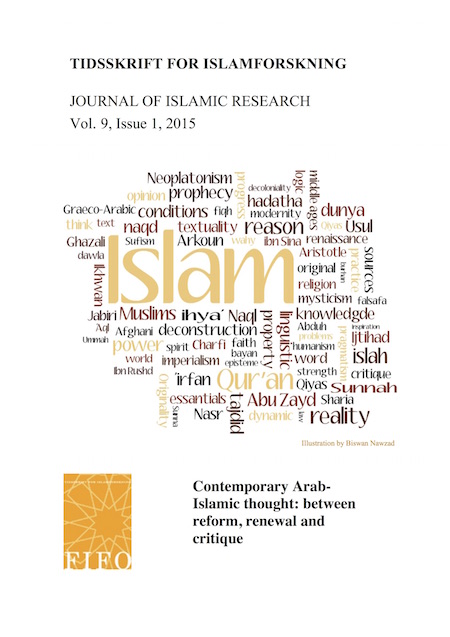Tradition and Modernity in Contemporary Islamic Philosophy
DOI:
https://doi.org/10.7146/tifo.v9i1.25343Keywords:
tradition, modernity, Islamic philosophyAbstract
In the aftermath of the cultural renaissance movement (naḥḍa), especially during the second half of the 20th century, philosophy succeeded in regaining the status it enjoyed in medieval times as an important part of the Muslim intellectual discourse. In recent decades, philosophical thought (falsafa) has gained more prominence and relevance, especially with regard to the Islamic debate about the role and function of the Islamic tradition in the contemporary modern world. In this debate, Muslim philosophers deal with various questions and issues, foremost among them: the concept of knowledge, the wider question of reform (iṣlāḥ), and the relationship between religion and secularism. How Muslim thinkers and philosophers understand the questions and how they answer them vary widely, depending on their methodological approach to these issues - metaphysics, historicity, hermeneutics, and deconstruction – as well as their different positions regarding the role of philosophy in relation to contemporary Islām in general and its role in understanding the Islamic tradition’s relation with modernity in particular. The aim of this paper is to shed some light on the methodological diversity in contemporary Muslim philosophy, through readings of the work of four thinkers.Downloads
Published
2017-02-05
How to Cite
Bektovic, S. (2017). Tradition and Modernity in Contemporary Islamic Philosophy. Scandinavian Journal of Islamic Studies, 9(1), 16–33. https://doi.org/10.7146/tifo.v9i1.25343
Issue
Section
Articles: Thematic section
License
Scandinavian Journal of Islamic Studies publish under creative commons license BY-NC-SA.





